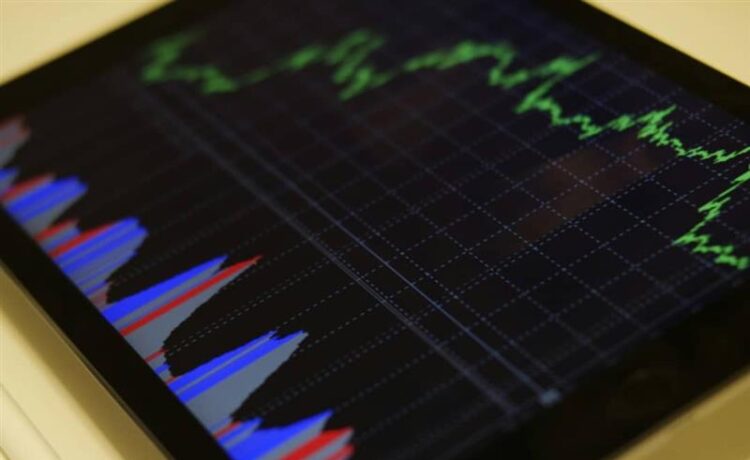The thing about the forex market is that it is highly interesting and also highly lucrative.
However, it can also be pretty volatile, which means that you need to know what you’re doing if you want to participate in this market.
Research and knowledge are key here.
The thing that a lot of people don’t understand is that it’s not just about knowing the terminology and jargon for forex trading, but that there is a whole other world behind forex trading that massively influences it. For starters, there are many other economic implications that dictate the value of the forex market.
Additionally, there are central bank policies and political movements that shape forex trading. Furthermore, if there is global turmoil or even a natural disaster, this can massively impact the market. These are all important things for you to know to better understand the forex market.
Economic Indicators and Reports
One of the strongest influences on currency prices comes from economic data. Governments and institutions release regular reports that reveal the health of an economy, and traders react to these numbers almost instantly. If you are someone interested in forex trading in Kenya, you will know a thing or two about this, that’s for sure.
Some of the most important economic indicators include:
- Gross Domestic Product (GDP): A country’s GDP shows the overall strength of its economy. A rising GDP usually strengthens the country’s currency.
- Inflation data: High inflation often reduces a currency’s value, unless central banks raise interest rates to counter it.
- Employment reports: Data like unemployment rates or new job creation reflect the economic outlook. Positive reports often boost a currency’s value.
- Trade balance: When a country exports more than it imports, its currency often strengthens due to increased demand.
As a trader, paying attention to scheduled economic announcements can give you insight into possible price swings. Many platforms even offer calendars with upcoming releases, so you can prepare in advance.
Central Bank Policies
Central banks play a massive role in shaping the forex market. They set interest rates, manage inflation, and intervene when necessary to keep economies stable.
Here’s how their actions impact forex:
- Interest rate decisions: Higher interest rates usually make a currency more attractive, as investors seek better returns. Lower rates often weaken a currency.
- Quantitative easing or tightening: When central banks buy assets to stimulate the economy (easing), it can weaken the currency. When they sell assets or reduce stimulus (tightening), it can strengthen the currency.
- Official statements: Even the words of central bank officials can move the market. A hint at future policy changes may cause big swings in currency values.
If you’re speculating, you need to keep central bank policies in mind, as indices trading can be greatly impacted by changes in these policies.
Political Stability and Events
Currencies don’t just reflect economics; they’re also tied to politics. Political stability tends to attract foreign investment, strengthening a country’s currency. On the other hand, uncertainty can lead to a weaker currency.
Some key political factors include:
- Elections: A new government can change economic policies, leading to shifts in currency value.
- Geopolitical conflicts: Wars, tensions, or sanctions can destabilize economies and weaken currencies.
- Policy changes: Tax reforms, trade deals, or new regulations can affect investor confidence.
When unexpected political events occur, things can change quite quickly in the financial forex market. Traders who keep an eye on the global news cycle are often better prepared for these sudden shifts.
Global Market Sentiment
Beyond hard numbers and political decisions, trader psychology also drives the market. The collective mood of investors, known as market sentiment, can move prices in powerful ways.
For example, when investors feel confident, they may put money into riskier currencies from emerging markets. You can track market sentiment by watching global stock markets, commodity prices, and even social media chatter around economic events. While it’s not an exact science, understanding the mood of the market can help you anticipate shifts before they happen.
Global Crises and Natural Disasters
You might be surprised to hear it, but even events like pandemics, earthquakes, floods, or financial crises have a direct and often immediate impact on forex markets. These situations disrupt economies, reduce investor confidence, and can drastically alter currency values.
For instance, during global health crises, certain currencies may drop due to reduced trade and tourism, while others might strengthen if they’re seen as safer bets. While you can’t predict natural disasters, being aware of how such crises typically affect the market can help you make more informed choices.
The Role of Speculation
Another factor that shouldn’t be ignored is speculation itself. Forex is a market filled with traders predicting future moves, and their collective actions create momentum. If enough traders believe a currency will rise, demand increases and drives up the price, sometimes even without immediate economic justification.
Large institutional traders, hedge funds, and investment banks often play a big role here. Their trades can create ripple effects that influence smaller traders.
There You Have It
The forex market may seem overwhelming at first, but once you break it down, it becomes more predictable.
Economic indicators, central bank policies, politics, global sentiment, and even natural disasters all combine to shape currency prices. That’s why it’s important that you stay in control of these changes so that you make smart and informed decisions going forward.









